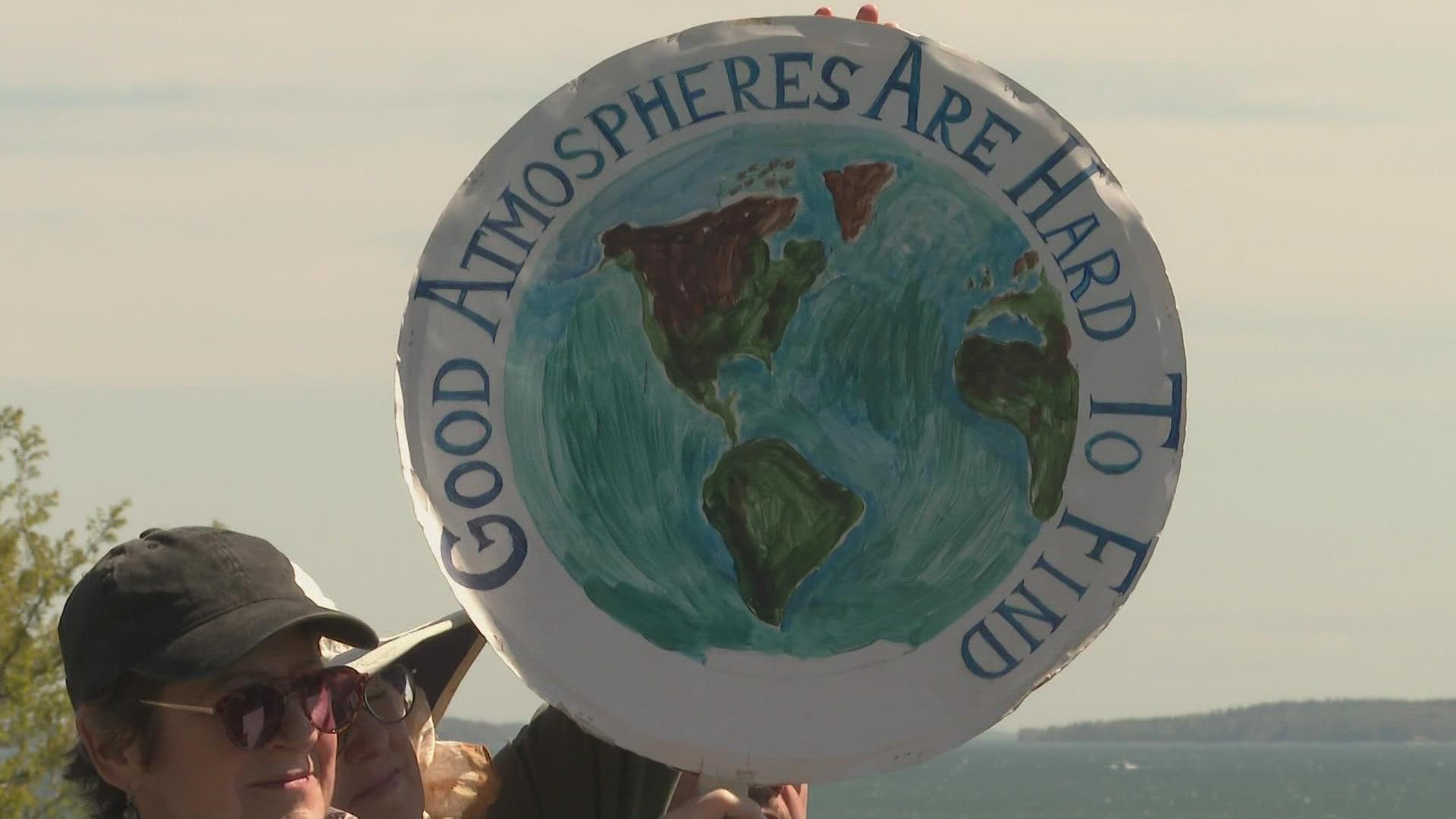PORTLAND, Maine — Maine has a chance to take a big step forward in its plans for offshore wind turbine production, but some fishermen and lawmakers have been weary of proposals for years.
More than a dozen supporters held a rally on Portland's Eastern Promenade Wednesday, pushing state leaders to secure research and, eventually, leases to place massive wind turbines in federal waters in the Gulf of Maine.
Speakers included Jason Shedlock, president of the Maine State Building & Construction Trades Council; Dana Connors, president of the state's chamber of commerce; Jack Shapiro of the Natural Resources Council of Maine; and Sarah Haggerty, a biologist with Maine Audubon.
They gathered a day before the Gulf of Maine Intergovernmental Task Force of the federal Bureau of Ocean Energy Management (BOEM) planned to meet with representatives from Maine, New Hampshire, and Massachusetts. It will be the first such meeting since 2019.
Governor Janet Mills, D-Maine, has already pushed to restrict projects in Maine waters, signing a 2021 law forbidding new projects in state waters for 10 years. Maine assumes stewardship over the first three miles away from its coast and islands.
In the water beyond that, BOEM plans to lease wind projects, and Mills is on board.
Last October, she sent an application to BOEM requesting a lease for 15 square miles of ocean to set up an array of floating research turbines, developed at the University of Maine, to figure out what's feasible.
She followed that up with a November letter to Interior Secretary Deborah Haaland, in part asking Haaland to "involve Maine fishermen" in lease decisions off Maine's coast.
Fisherman and Rep. Billy Bob Faulkingham, R-Winter Harbor, oppose offshore wind. Faulkingham believes the state is moving too fast with technology that hasn’t yet been proven, and in waters that have been heavily regulated for fishermen, he fears disturbing wildlife.
"The middle ground would be to do the research first," he said. "There’s absolutely no reason whatsoever why there would be a sense of urgency like that, to rush ahead without doing the research."
It's still unclear, prior to Thursday's BOEM meeting, how much research would be conducted in the region ahead of potential lease grants
In a statement to NEWS CENTER Maine on Wednesday, the Governor's Environmental Office wrote, in part, "With BOEM having announced its intention to pursue commercial leasing for offshore wind in the Gulf of Maine by 2024, we look forward to hearing more details about BOEM’s approach to this process, particularly regarding its engagement in Maine’s valuable fishing industry and coastal communities."
"We also wish to engage BOEM on furthering critical baseline research in the Gulf of Maine, on par with studies done elsewhere on the Outer Continental Shelf," the statement continued. "And research on how to avoid and mitigate impacts from offshore wind through the state's proposed floating offshore wind research array."
While Faulkingham opposes any potential encroachment in Maine's working water and believes the state and federal governments are moving too quickly, Maine Audubon biologist Sarah Haggerty said the fight against climate change hasn't moved fast enough.
"It really is a big balancing act," she said. "Climate change is the biggest threat to Maine’s wildlife. It really is. We’re already seeing changes; we’re already seeing impacts to species all over the state, on land, in the ocean."
"We have to be doing something," she continued. "We should have been doing this 20 years ago."
The virtual all-day meeting with the Bureau of Ocean Energy Management is open to the public and begins at 9 a.m. The meeting can be accessed here.

